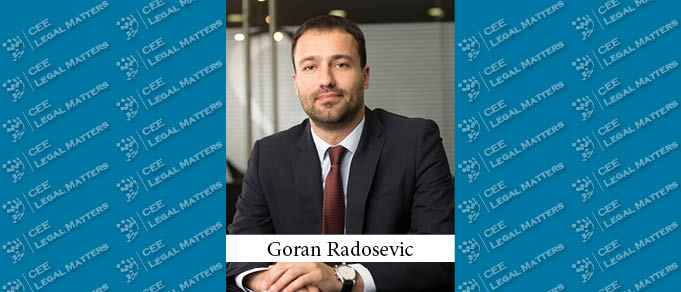“Due to a very hefty package of financial aid, at least judging by Serbian standards, our economy shouldn’t suffer a significant drop in GDP,” says Karanovic & Partners Partner Goran Radosevic. "Some estimates show that the drop shouldn’t be higher than 4%, which is much better than what our neighboring countries are expecting.”
“There are several reasons for the apparent small economic loss,” Radosevic says. “One is definitely the aid that our companies have received from the government (although there are valid arguments that it should have been better allocated depending on the impact they suffered). Another one is that our economy is structured in a different way than the economies of our neighbors. For example, tourism as an industry does not participate in our economy as much as it does in, say, Croatia or Montenegro.”
The stimulus measures for the private sector also included postponing the payment of taxes and covering a percentage of the minimum wage, among other things. In addition, the Serbian government provided a one-time payment of EUR 100 to every adult citizen. The total value of the government’s aid package has been estimated at EUR 5.6 billion.
Radosevic acknowledges that, despite the positive results of its initial measures, there may be a more serious economic crisis down the road. “That is the million-dollar question,” he says, in part because companies that accepted the government’s financial assistance are precluded from laying off employees for three months. “Some of our clients are concerned,” he says, “since the financial aid program is supposed to end soon, and companies will not be able to lay off their employees for a while after that. It is quite possible that we will feel the crisis quite a bit more by the beginning of the next year.”
That’s not the only threat to the economy, Radosevic says. “The new government has not been formed yet, now more than three months after the elections. That is not a very good signal for foreign investors, especially when coupled with coronavirus crisis, so we are seeing a bit of a slowdown on the market, especially in the M&A sector. There is little doubt over who will constitute the government, so there is really no reason to stall the process. It only postpones the infrastructure and legislative processes.” Still, Radosevic says, “despite all that, some positive trends can be seen on the market, and industries like e-commerce, IT, and pharmaceuticals have been on the rise.”
Finally, Radosevic says, “the new Law on Public Procurement, which has largely been harmonized with the EU directives, entered into force in July. It should, in principle, increase transparency. In addition, the law regulates the criteria for choosing between open tendering and direct negotiated procedures with more precision, and in line with EU practices. Direct tendering will be possible in the case of emergency, or when there is only one supplier on the market for the specific procurement. Another important aspect is that the electronic form of the procurement process has been introduced, which should make it both faster and more efficient.”




